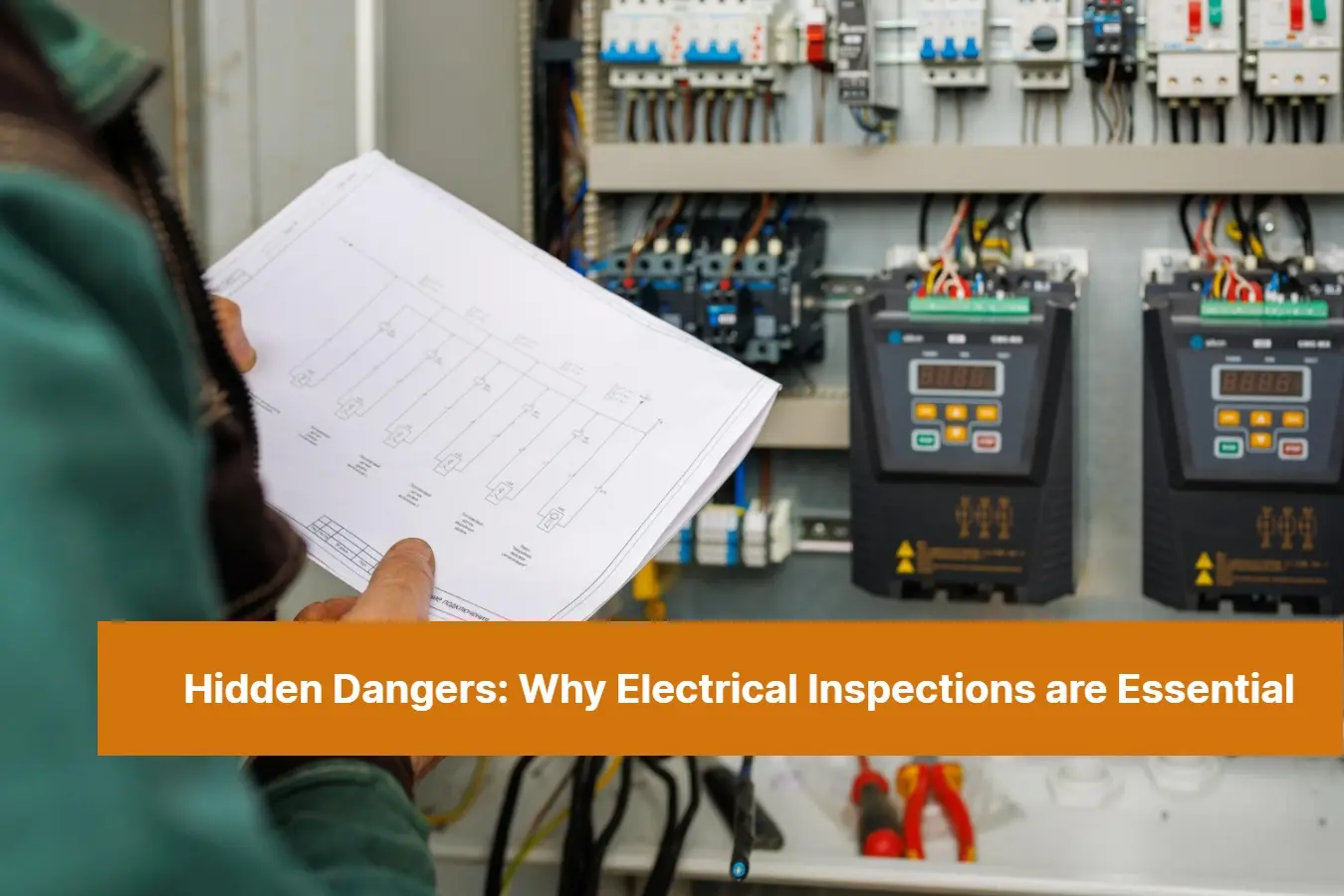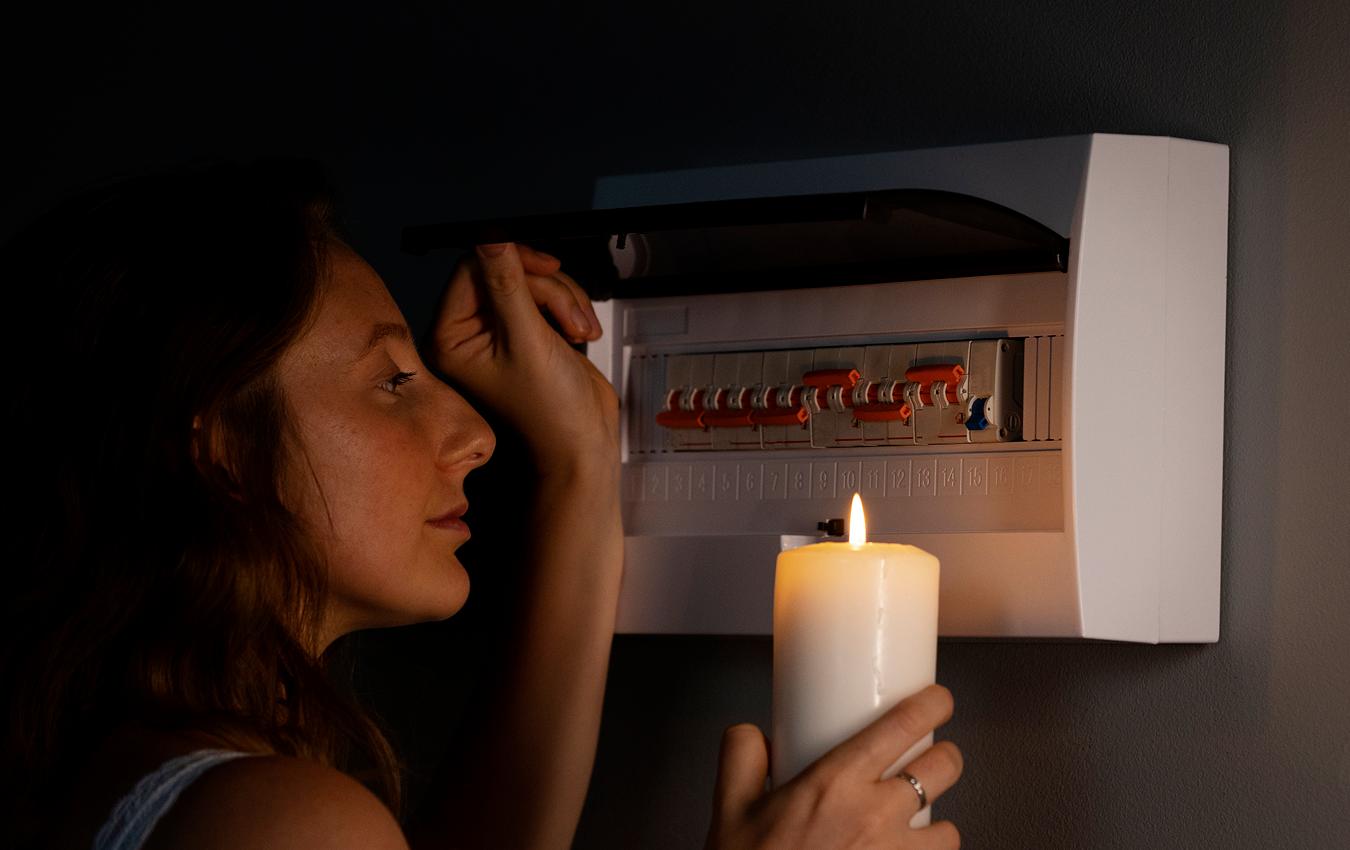Are you aware of the hidden dangers lurking within the walls of your home or workplace? Electrical hazards can pose significant risks to both your property and your safety. From faulty wiring to outdated electrical systems, these dangers can lead to devastating consequences such as fires, electrocution, and property damage. That’s why regular electrical inspections are not just a luxury but an absolute necessity. In this article, we will delve into the importance of electrical inspections and why they should be an essential part of your maintenance routine. By identifying potential hazards and addressing them promptly, you can ensure the protection and well-being of yourself, your loved ones, and your assets. So, join us as we uncover the hidden dangers and shed light on the critical role that electrical inspections play in keeping you safe and secure.
The Importance of Electrical Inspections
Electrical inspections serves as a crucial step in maintaining the safety and functionality of your electrical system. Whether you live in an old house or a new construction, electrical systems can deteriorate over time due to wear and tear, environmental factors, or improper installations. Regular inspections by a qualified electrician can help identify potential issues before they escalate into major problems.
During an electrical inspection, the electrician will thoroughly examine the electrical components, including wiring, outlets, switches, and circuit breakers. They will assess the condition of these elements, check for compliance with electrical codes and standards, and identify any potential hazards. By detecting and addressing these issues early on, you can prevent accidents, minimize repair costs, and ensure the longevity of your electrical system.
A timely electrical inspection of your home’s electrical system can help you avoid future electrical problems and keep your home safe. Premier Electrical Services can help you with electrical inspections and troubleshooting your home’s electrical system. To make a request, dial 954-900-1696 or use the online form.
Understanding Electrical Hazards
Electrical hazards can manifest in various forms, and it’s important to be aware of them to protect yourself and your property. Here are some common electrical hazards:
Faulty Wiring
Faulty wiring is one of the leading causes of electrical fires. It can result from poor installation, aging infrastructure, or rodent damage. Over time, wires can become frayed or damaged, increasing the risk of short circuits, sparks, and electrical fires.
Overloaded Circuits
Overloading circuits by plugging in too many appliances or devices can lead to overheating, circuit breakers tripping, and potential fire hazards. It’s important to distribute electrical loads evenly across circuits to avoid overloading.
Outdated Electrical System
Older homes or buildings may have outdated electrical systems that are not equipped to handle the demands of modern appliances and technology. These outdated systems can pose safety risks due to inadequate grounding, insufficient capacity, and a lack of safety features.
Damaged Outlets and Switches
Cracked or broken outlets and switches can expose live electrical wires, increasing the risk of electric shock or electrical fires. It’s crucial to address any damaged outlets or switches promptly.
Improperly Installed Electrical Components
Poorly installed electrical components, such as improperly grounded outlets or loose wiring connections, can compromise electrical safety. These installation errors can lead to electrical shocks, equipment damage, and electrical fires.
Common Electrical Issues in Homes and Businesses
Both homes and businesses can experience a range of electrical issues that require professional attention. Here are some common electrical problems to watch out for:
Flickering Lights
Flickering lights can indicate a loose connection, faulty wiring, or a problem with the electrical panel. It’s essential to have a professional electrician investigate the cause to prevent further issues.
Circuit Breaker Tripping
If your circuit breaker frequently trips or if you experience power outages in certain areas of your home or business, it may be a sign of overloaded circuits, faulty wiring, or a malfunctioning electrical component.
Hot Outlets or Switches
Outlets or switches that feel hot to the touch can indicate an underlying problem, such as loose connections or overloaded circuits. These issues should be addressed promptly to prevent electrical fires.
Burning Smell
A burning smell coming from electrical outlets or switches is a clear warning sign of an electrical problem. It could be due to faulty wiring, overloaded circuits, or overheating electrical components. Immediate action is necessary to prevent fires.
Non-Functioning Outlets or Switches
If outlets or switches stop working, it may be a sign of loose connections, damaged wiring, or faulty components. A professional electrician can diagnose the issue and provide the necessary repairs.
The Role of Electrical Inspections in Preventing Accidents
Electrical inspections play a vital role in preventing accidents and ensuring the safety of your property. Here’s how they contribute to a secure electrical system:
1. Identifying Potential Hazards
During an electrical inspection the electrician will thoroughly assess your electrical system, identifying potential hazards such as faulty wiring, overloaded circuits, or outdated components. By addressing these issues promptly, you can prevent accidents and minimize the risk of electrical fires, shocks, or damage to your property.
2. Ensuring Compliance with Electrical Codes
Electrical codes and standards exist to ensure the safe installation and operation of electrical systems. During an inspection, the electrician will check your electrical system’s compliance with these codes, ensuring that it meets the necessary safety requirements. Compliance with electrical codes is crucial for maintaining a safe and functional electrical system.
3. Enhancing Electrical System Performance
Regular electrical inspections can help optimize the performance of your electrical system. By identifying and resolving issues such as loose connections, voltage fluctuations, or inadequate grounding, you can improve the efficiency and reliability of your electrical system. This can result in reduced energy consumption, lower utility bills, and a prolonged equipment lifespan.
4. Peace of Mind
Knowing that your electrical system has undergone a thorough inspection provides peace of mind. It allows you to rest assured that your property and loved ones are protected from potential electrical hazards.
When to Schedule an Electrical Inspection
It’s important to schedule electrical inspections at regular intervals to ensure the ongoing safety and functionality of your electrical system. Here are some instances when an electrical inspection is recommended:
Buying or Selling a Property
If you’re buying or selling a property, it’s crucial to have an electrical inspection conducted. This will help identify any underlying electrical issues, ensure that the property meets safety standards, and provide peace of mind for all parties involved.
Remodeling or Renovating
When remodeling or renovating your home or business, electrical inspections are necessary to ensure that any changes or additions to the electrical system comply with safety regulations. This will help prevent electrical hazards and ensure the proper functioning of the upgraded electrical system.
After a Major Weather Event
Severe weather events such as storms, hurricanes, or floods can cause damage to electrical systems. Even if there are no immediate signs of electrical problems, it’s advisable to have an electrical inspection to ensure that the system hasn’t been compromised and is safe to use.
Aging Electrical Systems
As electrical systems age, they become more prone to wear and tear, increasing the risk of electrical hazards. If your property has an aging electrical system, regular inspections are essential to identify and address potential issues before they escalate.
What to Expect During an Electrical Inspection
During an electrical inspection, a qualified electrician will perform a comprehensive assessment of your electrical system. Here’s what you can expect during the inspection process:
1. Visual Examination
The electrician will visually inspect the electrical components, including wiring, outlets, switches, and circuit breakers. They will look for any visible signs of damage, loose connections, or outdated components.
2. Testing
The electrician will test the electrical system using specialized equipment to ensure proper functioning. This may include checking voltage levels, testing outlets and switches, and evaluating the integrity of the grounding system.
3. Panel Inspection
The electrical panel is the heart of the electrical system. The electrician will inspect the panel for proper sizing, adequate circuit protection, and compliance with electrical codes. They will also check for any signs of overheating or loose connections.
4. Documentation
The electrician will provide a detailed report outlining the findings of the inspection. This report will include any identified issues, recommended repairs or upgrades, and an overall assessment of the electrical system’s safety and compliance.
Hiring a Professional Electrical Inspector
When it comes to electrical inspections, it’s crucial to hire a qualified and experienced professional. Here are some factors to consider when selecting an electrical inspector:
1. Licenses and Certifications
Ensure that the electrical inspector holds the necessary licenses and certifications to perform electrical inspections. This ensures their competence and adherence to industry standards.
2. Experience
Look for an electrical inspector with a proven track record and extensive experience conducting inspections. An experienced inspector will have a more profound understanding of potential electrical hazards and be able to provide accurate assessments and recommendations.
3. Reputation and Reviews
Check online reviews and ask for references to gauge the reputation and reliability of the electrical inspector. Positive reviews and feedback from past clients are indicators of their professionalism and quality of service.
4. Insurance
Ensure that the electrical inspector has liability insurance coverage. This provides protection in case of any damage or accidents that may occur during the inspection process.
The Cost of Electrical Inspections
The cost of electrical inspections can vary depending on various factors, such as the size of the property, the complexity of the electrical system, and the location. Typically, residential electrical inspections can range from $200 to $500, while commercial inspections may be higher due to the larger scale and complexity of the electrical systems.
While the cost of electrical inspections may seem like an additional expense, it’s important to consider the long-term benefits and potential cost savings. By identifying and addressing electrical issues early on, you can prevent costly repairs, reduce energy waste, and ensure the safety of your property.
DIY Electrical Inspections vs. Professional Inspections
While it may be tempting to conduct DIY electrical inspections to save money, it’s highly recommended to leave this task to the professionals. Here’s why:
1. Safety
Working with electricity can be extremely dangerous, especially if you lack the necessary knowledge and training. Professional electrical inspectors are trained to handle electrical systems safely and have the expertise to identify potential hazards.
2. Thoroughness
Professional electrical inspectors have the knowledge and experience to conduct comprehensive inspections that cover all aspects of your electrical system. They have the tools and expertise to identify hidden issues that may go unnoticed during a DIY inspection.
3. Compliance with Codes
Electrical codes and standards are constantly evolving to ensure the safety of electrical systems. Professional electrical inspectors stay up-to-date with these codes and can ensure that your electrical system meets the requirements.
4. Liability
If you attempt a DIY electrical inspection and something goes wrong, you may be held liable for any damages or accidents that occur. Hiring a professional electrical inspector provides peace of mind and reduces the risk of potential liabilities.
Conclusion: Protecting Yourself and Your Property Through Regular Electrical Inspections
Electrical inspections are an essential part of maintaining a safe and functional electrical system. By identifying potential hazards, ensuring compliance with electrical codes, and addressing issues promptly, you can protect yourself, your loved ones, and your property from the risks associated with electrical hazards.
Whether you’re a homeowner or a business owner, don’t underestimate the importance of regular electrical inspections. Schedule inspections at appropriate intervals, especially when buying or selling a property, remodeling or renovating, or if you have an aging electrical system. Remember to hire a qualified professional to conduct the inspections to ensure thoroughness and accuracy.
Investing in regular electrical inspections is not just about compliance; it’s about safeguarding your safety and peace of mind. By prioritizing electrical inspections, you can enjoy the benefits of a secure electrical system that functions optimally, ensuring the protection and well-being of yourself, your loved ones, and your assets. So, take the necessary steps today to uncover the hidden dangers and ensure a safer tomorrow.
Don’t take chances with your home’s electrical system – Protect your family and your property by conducting regular electrical inspections on your home’s electrical equipment.
You can get assistance from Premier Electrical Services with electrical system troubleshooting and inspections in your home. Call right away at (954) 900-1696 or submit a request via the order form!
Check out the latest news:
- Commercial Energy Audit: Spotting the Sources of Energy Waste
- Protect Your Fort Lauderdale Home with Whole-House Surge Protection
- Power Outages in Fort Lauderdale: How to Protect Your Home
- Preparing for a Home Rewiring Project: A Checklist for Homeowners
- 5 Critical Signs You Need a Whole-House Surge Protector





